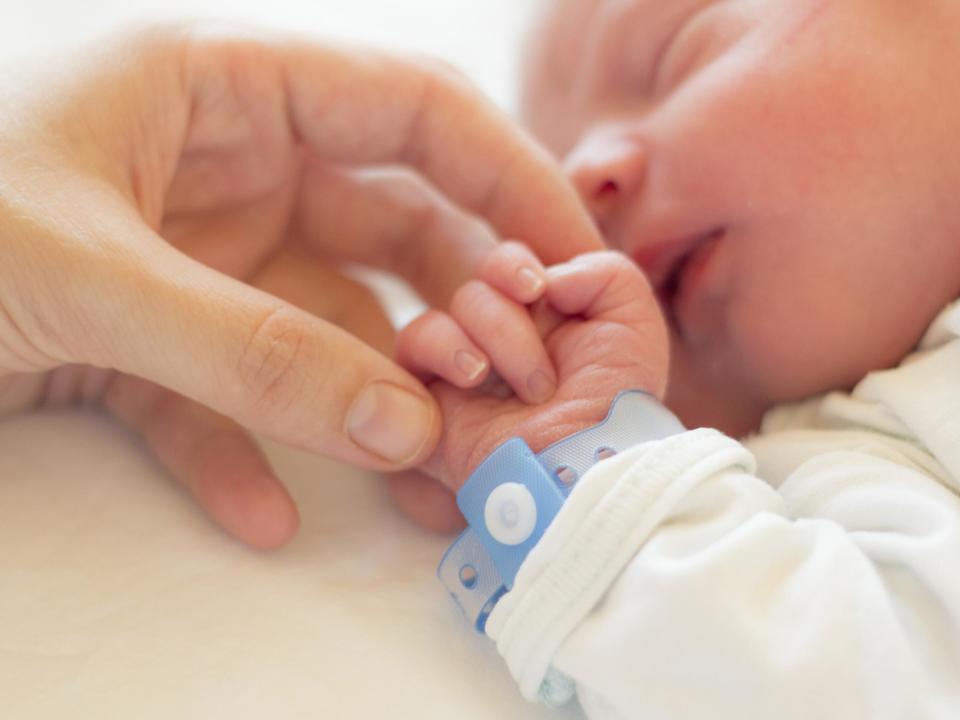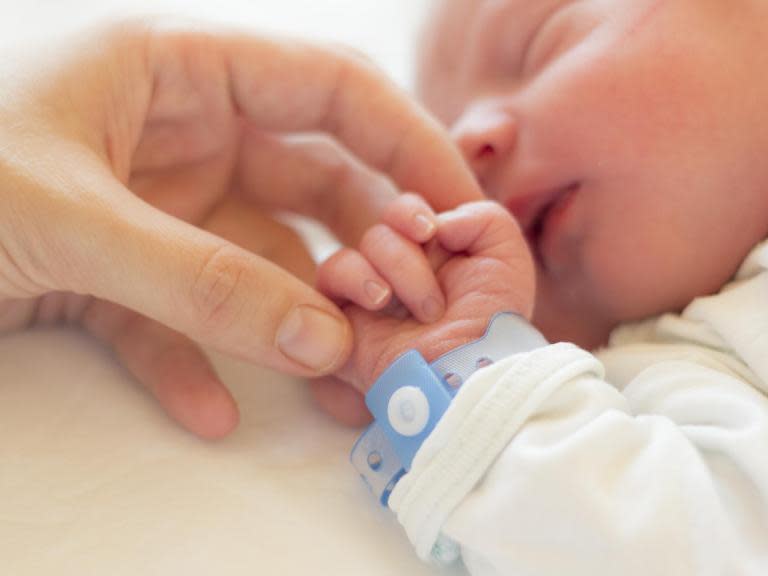Gently stroking babies reduces pain felt during medical procedures, study suggests
A gentle touch can soothe an upset baby and even dull its perception of pain, according to a UK study which found light stroking activates touch sensitive nerve endings and suppresses unpleasant sensations.
University of Oxford researchers studying responses to painful early-years procedures such as blood tests found stroking has an “optimal velocity” of 3cm per second, which reduced sensations of pain.
Using an electroencephalogram (EEG), they observed a measurable reduction in electrical impulses in the brain’s pain centres among children who were being lightly stroked but still reacted to the jab.
“Parents intuitively stroke their babies at this optimal velocity,” said senior author Rebeccah Slater, professor of paediatric science at the University of Oxford.
“We hypothesised that stroking would reduce pain-related brain activity, so we were pleased to see it.
“But we didn’t see a reduction in how they reflex their limbs away from the heel lance. That could mean our intervention is perhaps causing a dissociation between limb movement and brain activity.”
The findings, published in the journal Current Biology, could be incorporated into advice for new parents and for medical staff in neonatal units, to harness stroking’s side-effect free painkilling properties.
It may also help explain why parenting techniques such as “kangaroo care” – which involves premature babies being held close to the skin – can help improve bonding, the researchers said.
The effect is caused by the activation of a group of sensory nerve cells called c-tactile afferents, which are activated by slow stroking. The effect has been seen in adults but it wasn’t clear if it was learned or instinctive.
“There was evidence to suggest that c-tactile afferents can be activated in babies and that slow, gentle touch can evoke changes in brain activity in infants,” Professor Slater added.
“Previous work has shown that touch may increase parental bonding, decrease stress for both the parents and the baby, and reduce the length of hospital stay.
“Touch seems to have analgesic potential without the risk of side effects.”
Professor Slater, who worked with researchers from Liverpool John Moores University on the study, intends to study the effect on premature babies.

 Yahoo News
Yahoo News 

